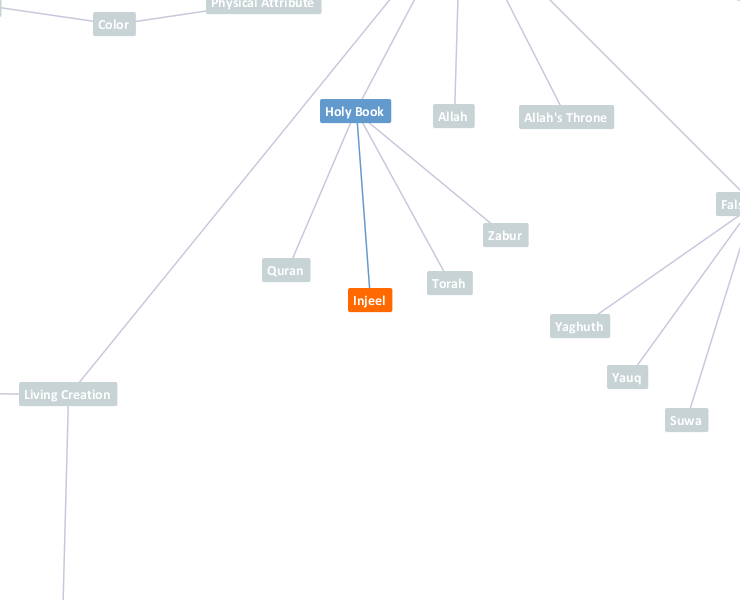You made me curious so I checked al-mu'jim al-mufahris li alfaath al qur'an and you are correct, the word injeel only appears in the following which are all Medinan Suras.
3 times in Aal 'Imran
5 times in al-ma'idah
1 in al-a'raaf
1 in al-tawbah
1 in al-fath
1 in al-hadeed
Well I read Quran so many times, let me read those
"injeel" verses again. But before going to the Quran verses that contain word "Injeel", let me scribble something just for those who are novice to Quran or to those who are looking at other two Abrahamic religious texts through the lens of Quran,
To start with according to Islamic belief, with in Quran, Injeel is supposed to be the name of holy book that allegedly revealed by God to Jesus Christ, . This concept is part of the following classification Abrahamic religions.

that is how this Islamic creationism comes in to picture., So According to traditional Islam those 4 holy books of Abrahamic religious revelations are 1). Quran, 2) Injeel, 3). Torah and 4). Zabur
According to Islam,
Zabur the 1st holy book of allegedly revealed to Dawud (David), by Gd before the Qur'an. So where is that the holy book of Dawud (David)?
 Torah is the 2nd holy book [ib]
Torah is the 2nd holy book [ib]allegedly revealed to Moses by Gd and according Jewish traditions it consists of 5 books namely 1). Genesis (Bereisheet) – 2). Exodus (Shemot)., 3). Leviticus (Vayikra), 4). Numbers (BaMidbar) and 5). Deuteronomy (D’varim). .. So all these are OT books.
Now our
Injeel is the 3rd holy book of Islam that was allegedly revealed to Jesus Christ and that itself is a alleged composition four more books namely 1). The Gospel of Matthew, ascribed to the Apostle Matthew. 2). The Gospel of Mark, ascribed to Mark the Evangelist. 3). The Gospel of Luke, ascribed to Luke the Evangelist and The Gospel of John, ascribed to John the Apostle..
And the
fourth and final one is supposed be our Quran., Now with that story., Any one who has bit of commonsense will frame/ask themselves simple questions on these Gd's successive revelations that are alleged;y collated as books....SILLY BOOKS ..books.... namely
"Zabur, Torah , Injeel, Quran," Q: What do we know about Zabur?..... where is the book??
Ans: ...Nothing..NOTHING... Zero.. Zippo..
That is OK.. So David's life is conventionally dated to c. 1040–970 BC, and he allegedly ruled
United Kingdoms of Israel c. 1002–970 BC. Now Gd slept for sometime with
His (HEeeee).. girl friends/boy friends and suddenly wakes up to reveal those OT books to Moses. When was that? what was the time scales.. we don't know that.. It is all over and it is all confusing..
Now casual look at
those old testament 24 books .. 24 books would make you to run for Quran as it is small book and simpler to read. But Question is What new good stuff reveled in Quran that is not there in those 24 OT books ?
Same question goes to new testament books, Our Islamic intellectuals answer that question.. saying
all that were reveled before Quran are corrupted.. When you ask about those, corruptions they run in circles..
To be fair to Quran over the New testament,
Quran often highlights that Jesus is NOT Gd or Son of Gd but a Prophet .., So that is only the correction in Quran. rest of the book is Gibberish and mostly copy/pasted patched up stories with some Junk such as rules for marriage, rules for war and rules for controlling the society.
So My point is THERE WAS NO MUHAMMAD., All these hadiths and Quran were collated way after the death of an unknown Arab pagan preacher who only said ..
"You Fools Jesus Christ was NOT son of god or God" but a messiah" That is all what he said.. Rest of Islamic literature (Quran and hadith) are all cock bull stories by early Arab Muslim rulers & warriors who told in the name of Muhammad to ruin the name of that poor guy .. The original Arab Pagan preacher
Anyways Let me read those Injeel verses of Quran ....